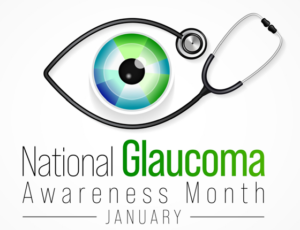Learn About the Importance of Early Detection and Treatment this Glaucoma Awareness Month

January is Glaucoma Awareness Month, a time to highlight the importance of protecting your vision and understanding the risks of this serious eye condition. Glaucoma, often called the “silent thief of sight,” can develop without noticeable symptoms, making regular eye exams essential. Consulting with an ophthalmologist in New Jersey is one of the best steps you can take to detect glaucoma early and prevent potential vision loss.
What is Glaucoma?
Glaucoma is a group of eye diseases that damage the optic nerve, which is vital for transmitting visual information from the eye to the brain. The most common form, primary open-angle glaucoma, occurs when fluid buildup increases pressure inside the eye, gradually damaging the optic nerve. Left untreated, glaucoma can lead to irreversible vision loss, often starting with peripheral vision and progressing to total blindness.
The Importance of Early Detection
One of the biggest challenges with glaucoma is its asymptomatic nature in the early stages. Many people do not realize they have the condition until significant vision loss has occurred. This is why regular eye exams with an ophthalmologist are so critical. Early detection allows for timely intervention, which can slow or halt the progression of the disease and preserve vision.
During a comprehensive eye exam, your ophthalmologist in New Jersey will check for signs of glaucoma by measuring your eye pressure, assessing the optic nerve, and testing your peripheral vision. If glaucoma is detected, your doctor will develop a personalized treatment plan to manage the condition effectively.
Treatment Options for Glaucoma
While glaucoma cannot be cured, its progression can often be managed with treatments such as:
• Medicated eye drops: These reduce eye pressure by improving fluid drainage or decreasing fluid production.
• Laser therapy: A minimally invasive procedure to improve fluid outflow or reduce fluid production.
• Surgery: In advanced cases, surgical procedures can create new drainage pathways to reduce eye pressure.
How an Ophthalmologist Can Help
An ophthalmologist is a key partner in maintaining your eye health. They provide expert care for glaucoma, from early diagnosis to advanced treatment options. Regular visits with an ophthalmologist are especially important if you have risk factors like a family history of glaucoma, diabetes, or high eye pressure.
This January, prioritize your eye health during Glaucoma Awareness Month. Schedule an appointment with an ophthalmologist in New Jersey at the Medical Group of New Jersey to ensure your vision remains clear and healthy for years to come.